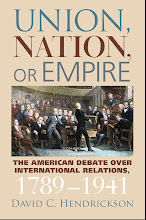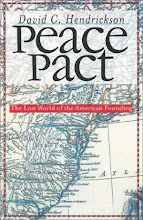On the history of financial crises, two classics are Charles R. Kindleberger, Manias, Panics, and Crashes: A History of Financial Crises (Basic Books, 1978), and Edward Chancellor, Devil Take the Hindmost: A History of Financial Speculation (Penguin, 2000). Peter L. Bernstein, Against the Odds: The Remarkable Story of Risk (Wiley, 1996) comes highly recommended, but I haven't read it.
On the various idiocies propounded in the name of economic science, but which ignored elementary common sense, see Richard Bookstaber, A Demon of Our Own Design: Markets, Hedge Funds, and the Perils of Financial Innovation (Wiley, 2007), and Nassim Nicholas Taleb, The Black Swan: The Impact of the Highly Improbable (Random House, 2007).
Check out the good amazon bookstore maintained by Hellasious at Sudden Debt.
On the social and political questions raised by the financial crisis, the best books are Kevin Phillips, Bad Money: Reckless Finance, Failed Politics, and The Global Crisis of American Capitalism (Viking, 2008) and Michael Panzer, Financial Armageddon: Protecting Your Future From Economic Collapse. Panzer is incredibly pessimistic on the social and political fallout, but has been vindicated thus far. His recent announcement that Financial Armageddon will appear in Japanese and Korean translation makes me think that we will soon see new variations on this theme in the history of cinema.
Two magisterial biographies of two great economists are Thomas K. McCraw: Prophet of Innovation: Joseph Schumpeter and Creative Destruction (Harvard, 2007) and Robert Skidelsky, John Maynard Keynes 1883-1946: Economist, Philosopher, Statesman (Penguin, 2005).
I breathlessly await James Grant, Mr. Market Miscalculates: The Bubble Years and Beyond, due at the end of November 2008.
11/01/08
skip to main |
skip to sidebar

YOU HAVE EVERY RIGHT TO FEEL THAT WAY.
This blogbook offers, with the aid of various charts, graphs, and tables, a pictorial guide to the 2008 financial crisis.
Navigation
Table of Contents
To see the presentation in order, use either the Labels below for each chapter or the Table of Contents for individual entries.
The initial presentation was made in October 2008 and was last updated in January 2009, though I recently substantially expanded the list of sources. Lately, I have been working on a blogbook called Energy Predicament.
June 2011
To see the presentation in order, use either the Labels below for each chapter or the Table of Contents for individual entries.
The initial presentation was made in October 2008 and was last updated in January 2009, though I recently substantially expanded the list of sources. Lately, I have been working on a blogbook called Energy Predicament.
June 2011
Featured Posts
Labels
- A. Introduction (4)
- B. Financial Stress (19)
- C. Housing Bubble (11)
- D. Debt Binge (14)
- E. Derivatives Jungle (7)
- F. Scale of Losses (7)
- G. Rescues and Remedies (12)
- H. Global Imbalances (6)
- I. Lessons (9)
Top Stops in the Financial Blogosphere
-
-
Why Trump Will Win The Tariff War3 hours ago
-
-
-
-
-
Economic Theory Summer Camp3 days ago
-
The Elephant In The Room3 days ago
-
-
This is the End and a New Beginning1 month ago
-
-
RTO Gets Serious: October 12 years ago
-
-
A Few Quick Announcements2 years ago
-
-
Links 5/7/20223 years ago
-
Thinking Outside the Grid6 years ago
-
-
The rise and fall of bitcoin8 years ago
-
The Blog Moves On8 years ago
-
Learning from Harvey8 years ago
-
Supply-Side Amnesia8 years ago
-
A Trip Through Putin Country8 years ago
-
Surviving America’s Political Meltdown8 years ago
-
Revenge of the Experts8 years ago
-
A Dim Outlook for Trumponomics8 years ago
-
-
-
Thursday Morning Link9 years ago
-
-
-
-
-
-
Q&A: The Fed’s Rate Cut17 years ago
-
-
-
-
-
About Me
I like charts.
I am not a dismal scientist.
My name is David Hendrickson. I teach international relations and American foreign policy at Colorado College.
My dubious record for 2008 is reviewed here, by some miscreants.
I am not a dismal scientist.
My name is David Hendrickson. I teach international relations and American foreign policy at Colorado College.
My dubious record for 2008 is reviewed here, by some miscreants.
FEELING GLUM AND OUT OF SORTS, PERHAPS A BIT ANGRY?

YOU HAVE EVERY RIGHT TO FEEL THAT WAY.
Kudos
A good number of my charts first appeared at Contrary Investor. Though oriented toward investors, CI offers a superb analysis of the real economy and its relationship to the financial system. It is an indispensable source not only for individuals but also for any good library. So subscribe, dammit.

